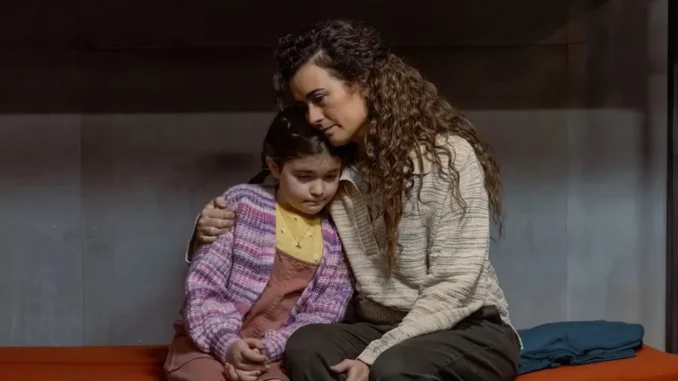
Introduction: The Fallout That Sparked Debate
When NCIS: Origins dropped Episode 6, fans expected an emotionally gripping continuation of Gibbs’ early story. Instead, what caught everyone’s attention was the way fallout from a character’s supposed “death” was handled. For longtime NCIS fans who lived through the legendary arcs of Tony DiNozzo and Ziva David, the difference was jarring. This fallout revealed a flaw—something the original NCIS didn’t struggle with during its prime. So, what went wrong? And why did Tony & Ziva never suffer from this kind of writing misstep? Let’s break it down.
The Legacy of Tony & Ziva in NCIS
Before we dive into the flaws of Episode 6, it’s important to remember why Tony and Ziva were—and still are—fan favorites. Their on-screen chemistry built a foundation of trust, tension, and loyalty. Every twist in their story, including near-death moments, felt earned because the show prioritized emotional continuity.
Episode 6 Fallout: What Happened
Episode 6 introduced a shocking death setup. A character fans had grown attached to faced a life-or-death moment, but instead of delivering authentic fallout, the show glossed over emotions. Characters moved on too quickly, the aftermath felt hollow, and viewers were left questioning the weight of the moment.
Why This Felt Different From Tony & Ziva’s Storylines
Tony and Ziva’s arcs always had depth. When Ziva was presumed dead in Season 13, Tony’s reaction was raw, heartbreaking, and believable. He left the team to raise their daughter because that’s what grief and love demanded. Compare that to Episode 6’s rushed resolution—where emotions seemed more like a checkbox than a natural response.

The Power of Emotional Continuity in NCIS
One of NCIS’s biggest strengths during its golden years was emotional continuity. Characters carried scars from previous seasons. Tony never forgot Kate’s death. Ziva’s grief over her father lingered. Gibbs’ haunted past always influenced his decisions. Episode 6, however, treated fallout as disposable, undermining the emotional weight.
How Episode 6 Fallout Points to a Bigger Problem
The rushed fallout highlights a flaw modern NCIS sometimes struggles with—pacing and emotional investment. Episodes try to pack too much into one storyline, leaving little room for natural character reactions. Tony & Ziva’s arcs, by contrast, stretched over seasons, allowing viewers to invest deeply.
Fans React: Social Media Backlash
As soon as Episode 6 aired, fans took to Twitter, Reddit, and Facebook. Many compared the mishandling of fallout to how Tony and Ziva’s emotional journeys were treated. Comments like “Tony would’ve never brushed off Ziva’s death like that” and “This doesn’t feel like NCIS anymore” trended within hours.
Tony & Ziva’s Arcs: A Masterclass in Long-Form Storytelling
The reason Tony and Ziva’s arcs worked so well is because they were slow-burn. The writers layered in emotion, tension, and small payoffs across seasons. Death, love, and loss were never quick fixes—they carried long-term consequences. Episode 6 failed to replicate that formula.
The Flaw Exposed: Disposable Storytelling
The biggest flaw Episode 6 exposed is what we might call “disposable storytelling.” Instead of lingering on grief, pain, or growth, the show seemed eager to reset the board and move forward. This makes shocking twists feel empty instead of groundbreaking.
Comparing Old NCIS to New NCIS
Old NCIS thrived because it balanced episodic cases with long-running emotional arcs. Tony’s jokes hid pain. Ziva’s strength masked trauma. Gibbs’ rules revealed his inner turmoil. New NCIS risks losing that balance when it treats fallout as secondary.
The Audience Expectation Factor
NCIS fans are not casual viewers—they’re deeply invested in these characters. That’s why Tony & Ziva’s arcs remain unforgettable. When Episode 6 skipped authentic fallout, it clashed with what longtime fans expect: emotional honesty and character-driven storytelling.
Could Tony & Ziva’s Legacy Fix NCIS’s Current Flaw?
Absolutely. The show could learn from their arcs by slowing down and letting fallout breathe. Imagine if Episode 6 allowed characters to mourn, reflect, or change course because of the death. That’s what made Tony leaving after Ziva’s presumed death so powerful.
The Risk of Alienating Loyal Fans
If NCIS: Origins continues with rushed fallout, it risks alienating fans who grew up on Tony, Ziva, and Gibbs’ layered arcs. Audiences want to feel the emotional weight, not see it brushed aside. That’s how you lose trust—and ultimately, viewership.
What Episode 6 Fallout Teaches About Modern TV Writing
Modern shows often lean on shock value. Episode 6 proved that without proper fallout, shock fades fast. In contrast, NCIS’s handling of Tony and Ziva showed that grief, love, and sacrifice outlast any twist.
Will NCIS Fix the Fallout Problem?
The big question remains: will the writers adjust? Fan backlash may push NCIS: Origins to course-correct, giving future episodes the emotional depth that Episode 6 lacked. If not, the series risks being remembered as the one that forgot what made Tony & Ziva legendary.
Conclusion: Why Tony & Ziva Never Had This Problem
Tony & Ziva’s arcs worked because the writers respected their characters and gave time for fallout to unfold naturally. Episode 6’s misstep showed how far modern NCIS has drifted from its roots. The flaw wasn’t in the shocking twist—it was in forgetting that true impact comes from emotional continuity. Tony & Ziva never had that problem because their stories weren’t disposable—they were timeless.
FAQs
1. Why do fans think Episode 6 fallout was poorly handled?
Because the emotional aftermath was rushed, leaving viewers feeling the death didn’t matter as much as it should.
2. How did Tony react to Ziva’s presumed death compared to Episode 6?
Tony’s grief was raw and life-changing, leading him to leave the team. Episode 6 lacked that kind of deep reaction.
3. What makes Tony & Ziva’s arcs different from modern NCIS storylines?
They were built on slow-burn storytelling with real emotional continuity, not quick resets.
4. What is the main flaw Episode 6 exposed?
Disposable storytelling—prioritizing shock twists over authentic fallout.
5. Can NCIS: Origins recover from this misstep?
Yes, if the writers slow down, focus on character-driven fallout, and learn from Tony & Ziva’s legacy.